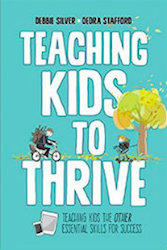How We Can Cultivate Integrity in Middle School
 By Debbie Silver
By Debbie Silver
It is an attentive teacher, carefully crafted assessments, and high-quality relationships that keep students honest. – Dr. Paul Richards
In middle school I had a lackluster teacher who put notes on the board for us to copy during class (with little or no explanation or discussion) and then assessed us with standardized chapter tests created by our textbook’s publisher.
I studied hard for his tests, but my scores were never as high as most of the other kids in the class, some of whom were notorious low achievers.
A friend finally let me in on the secret. One of our peers had obtained the answers for every multiple-choice test for the year, and my peers were memorizing the answers ahead of time. They didn’t even bother to learn the correct responses but rather just committed the precise letter choices to memory (e.g. 1-B; 2-A; 3.-D; etc.).
I took the high road and chose not to do it that way – until I got fed up with working so hard for sub-par grades. I joined in on the scam, assuring myself that nearly everyone else was doing the same thing.
My research into the topic of honesty informs me that my regretful choice to cheat is not uncommon among students. Experts report that while most students realize cheating is wrong, it is contagious, and it is widely accepted (particularly if students are able to rationalize their choices). Most of them cheat just enough to maintain their self-perception as a moral person.
Studies show that technology makes student cheating easier, more convenient, and harder to catch than ever before. “Copy/paste plagiarism” and failure to cite sources are still problems, but teacher and later school leader Paul Richards (2012) states these are not his main concerns:
Perhaps the most alarming news is that students say their cheating is contextual: based on the teacher, the assignment, or their overall workload. Decisions appear to be based on the extent to which the student can rationalize cheating in a given circumstance. Essentially, the academic integrity scale is a sliding one given the situation at hand, rather than a matter of a person’s sense of right or wrong (p.97).
Integrity and its component parts of honesty, respect, fairness, honor, authenticity, trustworthiness, responsibility, and courage to stand for one’s beliefs are fashioned from the social community. Middle grades students are at a pivotal time in their lives for developing significant patterns for future behavior. Adult role models at school can and should play a large part in shaping student choices.
What We Can Do
If students believe that honesty is conditional, perhaps it’s time we devote more attention to cultivating a culture of honor and integrity in our schools. Teachers can provide role-playing scenarios, reflective writing experiences, related videos, and other activities to facilitate frank and open discussions about student choices.
In our book, Teaching Kids to Thrive: Essential Skills of Success, Dedra Stafford and I explore several activities, strategies, tools, and resources for promoting veracity, reliability, and trustworthiness among students. We asked ourselves what a classroom that cultivates honesty and integrity looks like. Here are some of the indicators we found:
The teacher purposefully designs procedures that promote honesty.
- For major and ongoing projects, teachers create checkpoints to view and give feedback on rough drafts and work in progress.
- They actively monitor group work and exams.
- They create new assignments each year to discourage the temptation for younger siblings to “borrow” work from their older brothers and sisters.
- They make at least one part of major projects an oral assessment and/or they include a component that is related to activities from the class.
The teacher clearly communicates the importance of honesty and integrity throughout the school year.
- They demonstrate how to cite and paraphrase correctly so there is no misunderstanding. They clarify the difference between the student’s original thoughts and someone else’s work.
- They provide recurring opportunities for discussions about honesty and integrity. They regularly point out honorable acts and help students discern what actions are less than honorable and why.
- As a team, teachers reinforce honesty and integrity in their respective subject areas (e.g. literature teachers consider the integrity of fictional characters, science teachers have students debate ethical choices in lab tests, coaches stress the importance of honesty and integrity in sports, social studies teachers probe the moral decisions of leaders, etc.)
The teacher involves students in a shared role.
- They create an environment where students feel they can succeed and are not afraid to ask for extra help when needed.
- They reinforce the value of contributing something unique. They encourage and affirm creative thought and risk-taking in assignments.
- They involve students in making decisions about and sharing responsibility for the culture of the classroom.
- If they suspect students of cheating or plagiarizing material, they confront them directly and ask questions that allow students the opportunity to admit culpability or clarify the confusion.
 The teacher models honesty and integrity.
The teacher models honesty and integrity.
- Teachers show respect by telling students the truth, by keeping their promises, and by refraining from indulging in gossip or rumor spreading.
- They demonstrate the courage to stand for what they believe is right as opposed to what is just easy or popular. They support students in unjust situations.
- They gather all available information before making a decision. They enforce consequences equitably.
- They demonstrate compassion and empathy as they continue to hold students to high standards for integrity.
Middle level students generally have a strong sense of fairness and are open to pondering complex incongruities about right and wrong. They often come to us with mixed messages from home, from the media, and from their peers about when it’s okay to cheat. Today more than ever we need to ensure they get a chance to think deeply about what honesty and integrity mean to them and to help them align their choices with their beliefs.
Is cheating a problem in your classroom or at your school? Please share your ideas about the challenges you face.
Resources
Richards, P. (2012). Academic Integrity: A Case for Good Teaching. Independent School, 71(4), 96-98.
Silver, D. and Stafford, D. (2017). Teaching Kids to Thrive: Essential Skills for Success. Thousand Oaks, CA: Corwin Press.
_________________________
 Dr. Debbie Silver is a learning consultant and humorist with over 30 years of experience as a teacher, staff development facilitator, and university professor. As a middle grades classroom teacher, Debbie won numerous awards including the 1990 Louisiana Teacher of the Year award. She speaks worldwide on issues involving education and is a passionate advocate for students and teachers.
Dr. Debbie Silver is a learning consultant and humorist with over 30 years of experience as a teacher, staff development facilitator, and university professor. As a middle grades classroom teacher, Debbie won numerous awards including the 1990 Louisiana Teacher of the Year award. She speaks worldwide on issues involving education and is a passionate advocate for students and teachers.
She is the author and co-author of four bestselling books, including Deliberate Optimism: Reclaiming the Joy in Teaching. and her most recent (with Dedra Stafford) Teaching Kids to Thrive: Essential Skills for Success. Visit her website and follow her on Twitter @DrDebbieSilver.


































Very good article, and I agreed with you up until this: “Middle level students generally have a strong sense of fairness.” My students do not. They are, by and large, still far too immaturely selfish to really understand fairness.
Hi Sam!
That makes me sad to hear that some students have lost their sense of fairness. On the whole, that has not been my experience. Helping your students move to an understanding of and appreciation for fairness may be where you will want to start with your kids this year. Every one of the disciplines we teach at the middle level offers opportunities for discussion about ethical behavior and fairness. Part of the maturation process of pre-adolescents is moving from juvenile ethnocentricity to a broader perspective and a more balanced view of how the world works. I’m sure you work on this in your classes all the time. If you go to our website: http://www.teachingkidstothrive.com I think you will find class activities and resources that can help. The information is free. Let me know if I can be of help to you in your efforts to work on this important THRIVE skill.